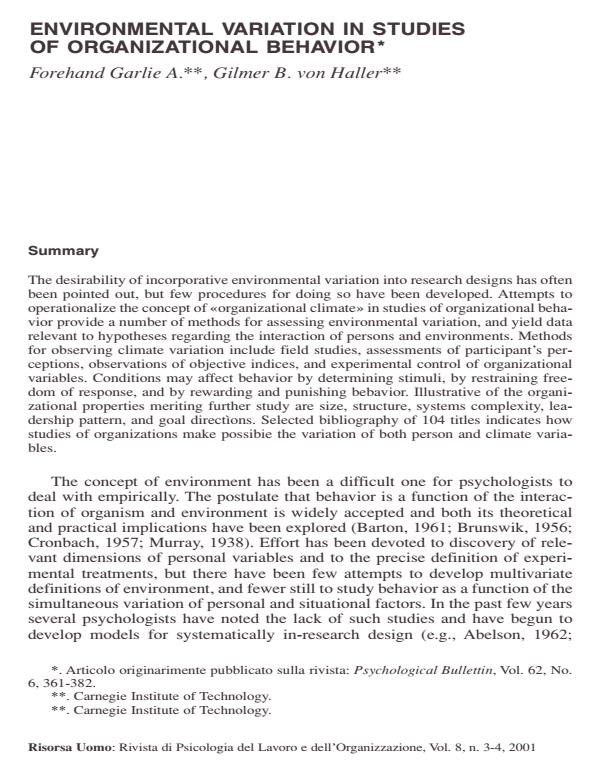Environmental variation in studies of organizational behavior
Journal title RISORSA UOMO
Author/s Forehand Garlie A., Gilmer B. von Haller
Publishing Year 2002 Issue 2001/3-4 Language Italian
Pages 26 P. File size 116 KB
DOI
DOI is like a bar code for intellectual property: to have more infomation
click here
Below, you can see the article first page
If you want to buy this article in PDF format, you can do it, following the instructions to buy download credits

FrancoAngeli is member of Publishers International Linking Association, Inc (PILA), a not-for-profit association which run the CrossRef service enabling links to and from online scholarly content.
The desirability of incorporative environmental variation into research designs has often been pointed out, but few procedures for doing so have been developed. Attempts to operationalize the concept of «organizational climate» in studies of organizational behavior provide a number of methods for assessing environmental variation, and yield data relevant to hypotheses regarding the interaction of persons and environments. Methods for observing climate variation include field studies, assessments of participant’s perceptions, observations of objective indices, and experimental control of organizational variables. Conditions may affect behavior by determining stimuli, by restraining freedom of response, and by rewarding and punishing bebavior. Illustrative of the organizational properties meriting further study are size, structure, systems complexity, leadership pattern, and goal directìons. Selected bibliography of 104 titles indicates how studies of organizations make possibie the variation of both person and climate variables.
Forehand Garlie A., Gilmer B. von Haller, Environmental variation in studies of organizational behavior in "RISORSA UOMO " 3-4/2001, pp , DOI: